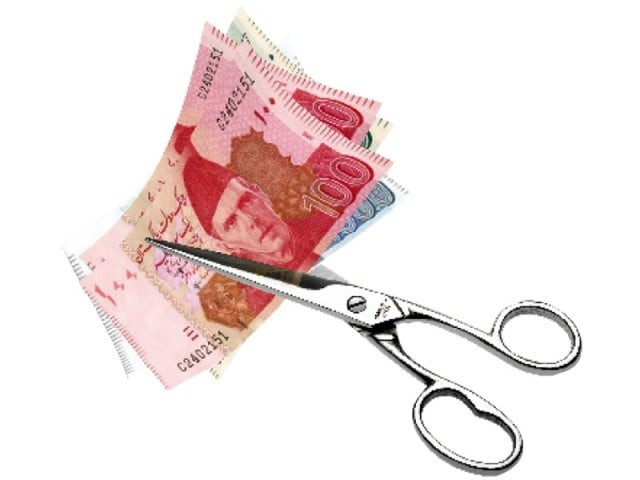Financial constraints: Anti-poverty schemes face budget cuts
1.1 million households removed from the list of BISP beneficiaries in just three months.

Financial constraints: Anti-poverty schemes face budget cuts
As many as 2.3 million households have been dropped out of various social safety net programmes, resulting in a 50 per cent reduction in anti-poverty expenses from July to September last year, an official report revealed.
The drop was witnessed in both the government flagship programmes, Benazir Income Support Programme (BISP) and Pakistan Baitul-Mal, according to a poverty reduction strategy paper progress report of the finance ministry.
As against 5.2 million beneficiaries, the list contracted to just below 3 million, said the finance ministry. Similarly, as against Rs 18.9 billion expenses incurred to provide some kind of relief to the poor in the first quarter of the last financial year, the expenses decreased to Rs 8.4 billion, a reduction of over 50 per cent.
According to a research carried out by Akmal Hussain, as much as 43.1 per cent or 79.1 million people of the country live in abject poverty. By this account, only 3.8 per cent of people in this bracket received any kind of assistance.
The BISP was initiated in 2008 to offset the impact of inflation by giving Rs1,000 per month in cash grants to women. According to the report, as many as 1.1 million households were erased from the list of BISP beneficiaries in just three months.
“The dropout was because of a change in system of cash distribution for deserving people to families who have qualified through the poverty scorecard mechanism,” the report stated.
Based on this mechanism, any individual who obtained 16 marks out of 100 qualified for the cash grant. The World Bank has asked Pakistan to focus on those who scored in the range of 17 to 23.
Of the 2.7 million beneficiaries, 1.1 million or 44.1 per cent were from Sindh followed by 682,613 from Punjab (25.7%), 606,592 (22.8%) from Khyber-Pakhtunkhwa and 143,317 (5.4%) from Balochistan. The rest were from Gilgit-Baltistan, Azad Jammu and Kashmir and FATA.
Pakistan Baitul-Mal
There was also a significant dropout in Baitul-Mal beneficiaries. There was a sharp decrease of 83 per cent in beneficiaries, as 940,723 people remained deprived of any kind of assistance during the first quarter of the fiscal year. The total number of beneficiaries stood at just 191,973 in the first quarter as against 1.1 million in the corresponding period of the last fiscal year.
The total disbursements made under Baitul-Mal witnessed a negative growth of 25.1 per cent from July to September. As against Rs 732.8 million disbursements of the last year’s first quarter, this year the releases remained at Rs 548.6 million, the report concluded.
Published in The Express Tribune, February 29th, 2012.


















COMMENTS
Comments are moderated and generally will be posted if they are on-topic and not abusive.
For more information, please see our Comments FAQ